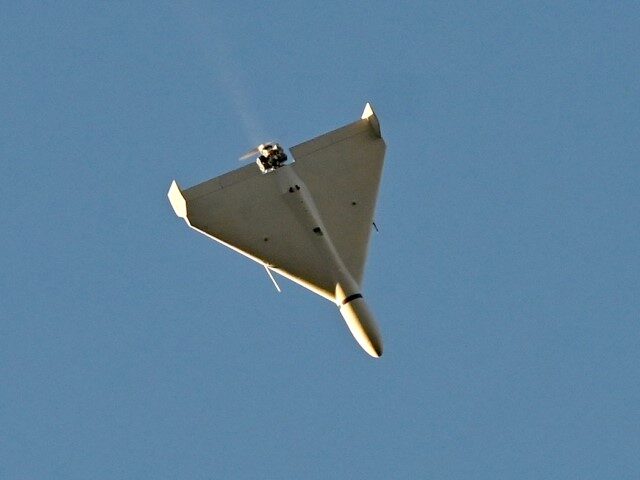An armed drone struck a Liberian-flagged oil tanker named Pacific Zircon off the coast of Oman on Tuesday night. The attack reportedly inflicted no major damage or casualties.
An unnamed Israeli official told Reuters on Wednesday that Iran is a prime suspect in the attack.
“Preliminary reports indicate the vessel, carrying a cargo of gas oil, was hit by a projectile approximately 150 miles off the coast of Oman,” the ship’s operators said in a statement on Wednesday.
“We are in communication with the vessel and there is no reports of injuries or pollution. All crew are safe and accounted for. There is some minor damage to the vessel’s hull but no spillage of cargo or water ingress,” the statement said.
Reuters cited three sources who said the “projectile” that hit Pacific Zircon was a drone. The Israeli official more specifically identified it as a Shahed-136 suicide drone, a weapon Iran was caught supplying to Russia for use against Ukrainian forces after weeks of denials from both Tehran and Moscow.
The ship is operated by a Singapore-based company called Eastern Pacific Shipping, which boasts a fleet of over 200 oil and cargo vessels and is owned by Israeli shipping and mining tycoon Idan Ofer.
Idan is the son of Sammy Ofer, who built a shipping empire from a single cargo vessel and was Israel’s wealthiest man at the time of his death in 2011. Shortly before Sammy Ofer’s death, one of his shipping companies was sanctioned by the U.S. State Department for allegedly violating sanctions against Iran.
The Ofer family’s history may or may not have been a factor in the drone pilot’s choice of target. The Iranian government did not acknowledge the attack or claim credit.
The Times of Israel (TOI) quoted analysts who suggested Iran is lashing out after the seemingly final demise of the Barack Obama nuclear deal, or to distract the Iranian public from the remarkably persistent protest movement currently threatening the regime, or perhaps even because Tehran is worried about suffering political embarrassment at the FIFA World Cup in Qatar, which begins on Sunday.
“The risk of attacks against shipping and energy infrastructure in the wider region is rising mainly due to the lack of progress in U.S.-Iranian nuclear diplomacy and the decision by Washington to apply further sanctions pressure on Iran. Since 2019, Iran has consistently responded to new US sanctions with covert military action in the region,” Verisk Maplecroft analyst Torbjorn Soltvedt told TOI on Wednesday.
“There is not just an increasing risk of disruptive attacks against energy infrastructure in the region, but also a growing risk of a wider military confrontation with more serious consequences for world energy markets,” Soltvedt warned.
Iranian state media blamed Israel for the attack, claiming the “Hebrew-Arab axis” wanted to frame Iran and create a “charged atmosphere” for the World Cup. Reuters noted “Hebrew-Arab Axis” is Iranian regime propaganda for the Gulf states that have improved relations with Israel under former President Donald Trump’s Abraham Accords, particularly the United Arab Emirates (UAE) and Bahrain.
Brent crude oil prices rose 65 cents to $94 a barrel after news of the attack, although depressed demand from China due to coronavirus lockdowns continued to keep prices low.
U.S. Central Command (CENTCOM) commander Gen. Michael Kurilla blamed Iran for the attack in a statement on Wednesday, saying the assault on a civilian vessel in a vital shipping lane “demonstrates, once again, the destabilizing nature of Iran’s malign activity in the region.”

COMMENTS
Please let us know if you're having issues with commenting.